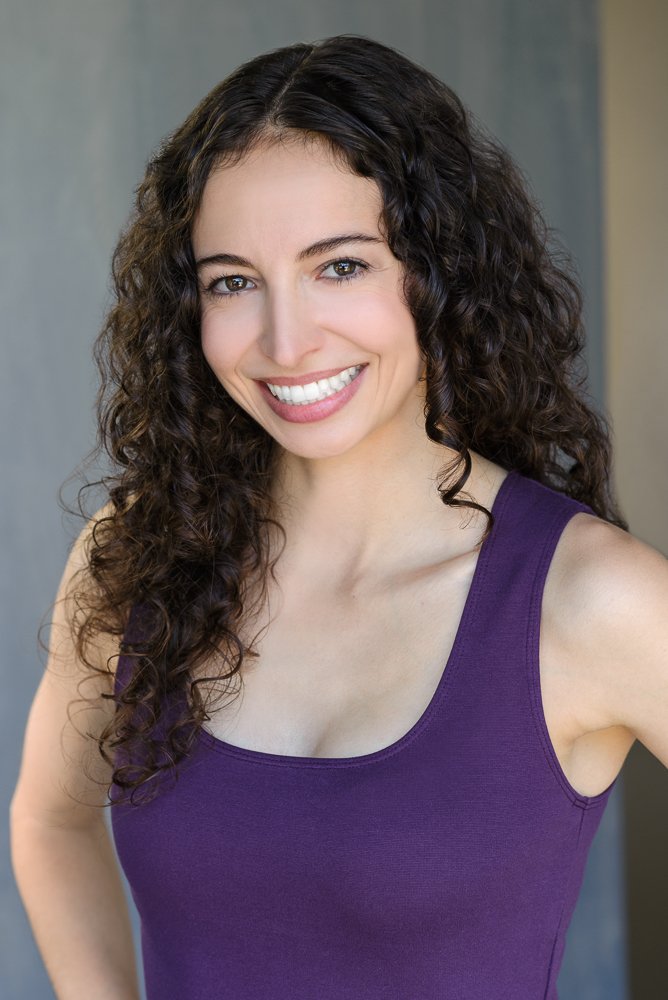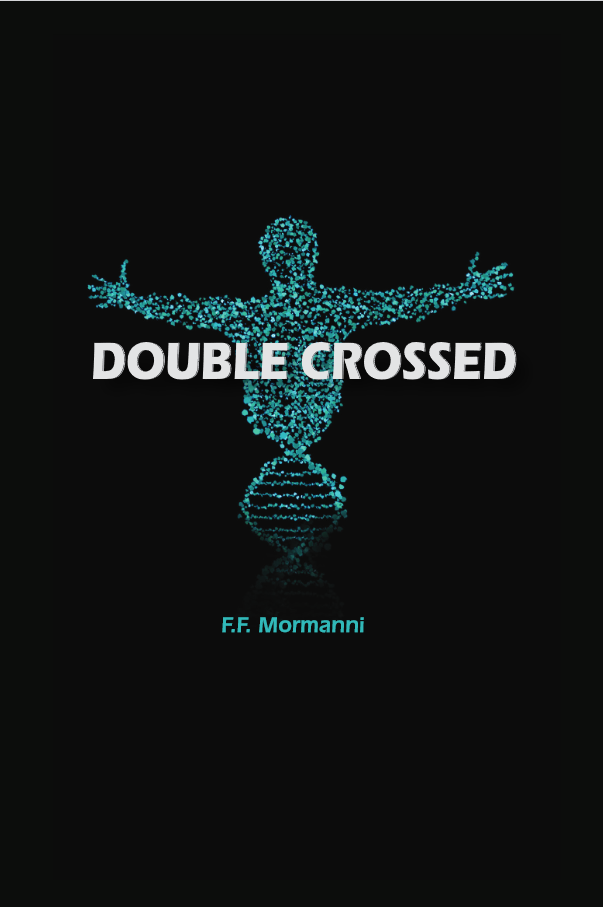Q&A with F. F. Mormanni
/You’ve written across several genres—sci-fi, thriller, drama, fantasy, and horror. What draws you to explore such a wide range of stories?
As a kid, I was a voracious reader, and loved fantasy and sci-fi novels—anything with immersive world-building. So naturally, when I started writing my own stories, I leaned toward high fantasy. As time went on, I was exposed to a wider range of stories, mostly through regularly watching all kinds of films, and realized that I was interested in pretty much any genre if the themes were strong and the characters were compelling.
I enjoy the challenge of writing stories in different genres. I think I am better at writing sci-fi and thriller, simply due to having practiced them more, but I don’t want to limit myself.
Double Crossed and Mind the Gap both have unique titles—can you tell us the story behind them?
Double Crossed is a medical techno-thriller novel about CRISPR and memory transfer technology being used for nefarious purposes—specifically, an attempt to infiltrate the government by surreptitiously planting a human clone in the White House, and how this impacts both geopolitics and the president’s relationship with his childhood best friend. For most of the writing process, I used a stand-in title, as nothing really clicked for me until after I had finished the first draft.
Several characters in the novel are cloned using this technology without their knowledge or consent. The “double” in the title refers to both the literal existence of these clones and the duplicity required to keep them hidden. It’s a play on the espionage term “double cross” because, the doubles/clones, by impersonating their originals, betray the very values those originals stood for and the country for which they work.
I came up with the title for Mind the Gap early on in the writing process, though I didn’t fully develop its layered meaning until I had finished editing and started working on the script adaptation. The story follows rebellious young adults in the daredevil photography community—people who run through working subway tunnels, and climb bridges and skyscrapers. In the physical sense, the title refers to the gap between a safe subway platform and the dangerous subway tunnels. Additionally, “mind the gap” is a recurring statement over the loudspeakers on the London Underground (though my novel takes place in New York City).
The title also represents the psychological gap between abstraction and reality. Rocco, the protagonist, and most of his friends stand on the brink of dangerous decisions, such as succumbing to the allure of drugs, trespassing, hanging out with the wrong crowd, or putting themselves in life-threatening situations. However, one of the themes I explore in the novel is that, although it might be tempting to participate in these risky behaviors, we have the ability to choose otherwise.
How does your background in screenwriting influence the way you write novels, and vice versa?
When I come up with a story I think would work for both mediums, I usually write the novel first and then adapt it into a script. I find it easier to fully develop the world, characters, and plot in prose before figuring out how to extract the essentials into a much leaner format.
This year is actually the first time I’m doing this process in reverse. With Whispered, my espionage thriller, the plot came to me quickly, and because screenplays are shorter, I decided to write the script first. Now I’m working on the novel version, and although having the skeleton already fully built is helpful, fleshing it out with the depth a novel requires is a completely different ballgame.
My screenwriting background shapes the way I write novels, as I tend to visualize scenes cinematically. At the same time, writing novels is a good reminder of the importance of a strong literary tone, even for scripts, which tend to have limited word counts.
Which of your literary influences—Asimov, Herbert, Tolkien, Rand—has shaped your voice the most, and how?
Ayn Rand has influenced my writing and my life in general more than any other author. Her writing style is incredibly clear, but also has a distinct artistic flair and sense of life. I re-read her fiction every few years and always discover something new. By regularly reading her works, I’ve learned how to develop conflict between characters and how to explore a wide range of themes within complex stories.
You’ve adapted some of your novels into screenplays. What’s the biggest challenge in translating your work for film?
The biggest challenge is learning how to extract the essentials from a novel to fit the constraints of a screenplay, which is typically around 120 pages, or two hours of screen time. As much as I would love to adapt every scene, the process requires cutting and reshaping certain things so they are more natural for actors to portray and more efficient for the screen. Descriptions need to be tight, but vivid—just enough for directors, producers, and other collaborators to understand the original vision.
How has performing at prestigious venues like Carnegie Hall and Lincoln Center shaped your approach to storytelling in other mediums?
Drawing from the old saying, “practice, practice, practice” to get to Carnegie Hall, it really did take years of consistent work before I could perform regularly at venues like that. It shaped my approach to storytelling in the sense that I understand how long it takes to get good at anything. I’ve carried that mindset into every other medium in which I work.
Being in the classical music world has also exposed me to a wide range of experiences, including high-pressure situations. I’ve included some of these moments in scenes or storylines in my writing.
You wear many hats—novelist, musician, producer, actress, and model. How do you stay creatively grounded across so many disciplines?
Practicing one discipline always helps me improve in others. For example, playing piano improves my dexterity, which carries over to flute and harp, and vice versa. Acting deepens my understanding of character development and dialogue, which makes me a stronger writer.
I keep a database of ideas across all mediums. Some stories are better suited for film, others for a novel or piece of music. Being involved in multiple forms allows me to choose the format that works best for any given idea.
I don’t always have enough time to work on everything every day, but I carve out time each week to work on creative projects. It’s important to be intentional about continuing to grow in each area over time.
Looking back, which creative achievement are you most proud of—and why?
I’m most proud of getting into Juilliard. It was a dream I had since I first started playing flute and harp. During the year of my auditions, I reached a new level of playing that felt like the equivalent of fluency in a language. I could fully express myself musically and had achieved the technical mastery I had been working toward for years. What made it even more meaningful was being able to maintain a high level of playing under immense pressure.
If you could collaborate with any one of your listed influences—living or not—who would it be and on what kind of project?
Michael Crichton. I’ve always admired how he built such an impressive career as a novelist, screenwriter, director, and producer, all after going to medical school. Like Crichton, I enjoy weaving real science and technology into my plots and exploring how today’s discoveries might influence future advancements. If I could collaborate with him, I would want to co-write a feature script and have him or Spielberg direct it.
Are there any upcoming novels that we should look out for?
Yes, Whispered is my upcoming novel, which I hope to publish in the near future. It’s an espionage thriller about a disgraced CIA operative who investigates the seemingly senseless murder of his brother and subsequently uncovers a neo-Nazi plot to overthrow the German government.
What advice would you give to artists trying to navigate multiple creative paths at once?
I think it’s important to pursue multiple creative paths, even though conventional wisdom says to focus on just one. It’s true that mastery takes time, but exploring different disciplines can make you more well-rounded, which almost always benefits your work. It also helps you figure out what you truly love and keeps the day-to-day process interesting.
Structure also matters. I recommend setting a schedule so that each creative path gets the time it deserves. It doesn’t have to be rigid, but consistency is key.
Industry relationships also play a big role. In entertainment especially, being active in one area can open doors in another. For instance, acting on a set might lead to writing opportunities. Producing a project might connect you with collaborators for another. Each path can end up supporting the others.
Book Information:
Double Crossed
After reading about unusual autopsy findings of a recently deceased senator, President Jeremy Lewis opens an investigation into what is soon revealed to be an apparent foiled attempt to infiltrate the administration at the highest level through the use of medical and technological capabilities far beyond what is known to exist. President Lewis then enlists his childhood best friend and tech-savvy entrepreneur, Ian Richards, to assist him in the endeavor.
This same death arouses the suspicions of Ross Blanchard, a relentless reporter for The New York Times, who avails himself of equally sophisticated technology in his own investigation. The intelligence community and Blanchard ultimately cooperate, culminating in a daring raid on a clandestine laboratory in the most unlikely of locations. But is this really the end of it?
Buy on Amazon
Mind the Gap
After the sudden loss of his father, Rocco Amiri, a misguided, rebellious young adult, begins spending his nights running through working New York City subway tunnels, climbing bridges, and exploring rooftops with his friends.
As he tries to uncover information about his late father and struggles to make ends meet in the city that never sleeps, Rocco slowly establishes a presence in the “outlaw Instagrammer” community with his best friend, Thalia. However, Rocco must soon decide whether indulging his passion for photography and satisfying his curiosity about his father are worth the risk.
Mind the Gap unmasks the clandestine New York City urban community and tells the story of the fine line between safety and danger—one easily crossed by those who seek dangerous thrills.
Buy on Amazon

















































